#which means I'm on holidays
Text
anyone else have multiple traumatic memories associated specifically with holidays/family vacations? because that is a topic I never see discussed in all the So You Had A Shitty Childhood, Now What? self-help books i've been reading. but for me, it was a significant thing. and the more i think about it the more it seems like this would be an (unfortunately) common experience. would be grateful to hear if this matches other peoples' experiences...
#not a shitpost#serious post#ask to tag#tw trauma#cptsd#c-ptsd#and if so we should TALK about it#because it means there are a whole group of survivors out there whose mental health regularly worsens during holidays#like i know i am most certainly not the only person who feels an undefined Dread hanging over christmas/my birthday/july 4 etc#bc too many shitty things happened during those times and now my brain is hypervigilant bc traditionally these are the Danger Times#and this seems like it would be particularly common for survivors of abusive/dysfunctional households (aka most people with c-ptsd)#because holidays/vacations typically mean 1) the whole family is together/being forced to interact#2) and undergoing external stressors e.g. travel/relatives aka 'outsiders' visiting/routines & coping mechanisms being interrupted etc#3) there is social pressure for this to be a Fun Family Bonding Experience which only highlights the cracks in the foundation#and exposes the common Everything Is Fine/We Are A Happy Family lie#4) the cognitive dissonance of feeling tired/anxious/stressed/afraid during a time when you are 'supposed' to be Making Good Memories#and then everyone is angry/tired/anxious/triggered and things boil over and something or someone goes Very Wrong#weird that i'm posting this in october when halloween is...sort of the ONLY holiday i have only good and happy feelings towards#i got lucky there#also i have positive feelings towards Labor Day but that's for socialist reasons
4K notes
·
View notes
Text
idk it sounds reasonable to me for a teenager to run away bc they didn't want to eat their veggies!
one hopes that by the later stages of childhood a parent will have figured out which veggies and preparation styles work for the kid, and the kid will have resigned themself to what they do and don't have to eat according to their parents, and it's all settled into an equilibrium instead of a daily fight. and hopefully as a teen your palette is expanding and you're even willing to eat more veggies then you did as a child.
however, if the kid is extra picky and stubborn, and the parent is extra determined to make sure they eat a good variety (or just eat whatever the parent prepared no matter what it is), it could absolutely continue to be a regularly-repeated fight. and if something is a continued point of contention throughout childhood then it absolutely makes sense for a teen to go FUCK this, i am nearly an ADULT i am done being told to eat my veggies i am gonna prove my independence and make them realize i don't have to just sit there and let them boss me around!!
like, the childishness of the fight is exactly why a teen would run away about it.
#i'm so picky and only got pickier throughout my teen years#i usually just made myself a separate quick meal when i didn't like dinner#if my parents hadn't let me and had tried to insist i eat the same thing as everyone else?#well. idk what i woulda done bc that would require they have an entirely different parenting style overall.#so who knows what kind of person i would be lol#but leaving the house for a couple hours seems pretty reasonable to me#but it's also normal for a parent to have an 'everyone sits at the table and eats what i've prepared' rule#for a variety of reasons ranging from well-meaning to self-centered#and i'm sure there are parents who will even try to foist the same old veggie rules upon adult children visiting for the holiday#i think 'what's the latest age at which a veggie fight might occur' says more about the parents than the kid#since they're the one turning it into a fight instead of letting it go#so ig if you want them to be closer to model parents then sif would have to be pretty young#but i think 'the type of parent to never stop arguing about veggies' is an interesting flaw to add#to make a parent who is loving and wonderful overall but has their own blind spots and mixed up priorities#isat spoilers#isat#siffrin#I UNDERSTAND WHY people think sif must be young and i'm fine w that#this is just my perspective :)#thoughts about siffrin#thoughts
56 notes
·
View notes
Note
Hiiii :3 and could you do Kate laswell and könig with a reader who loved cuddles?
Hey there! Sure I can! But I don't write Laswell as very cuddly! But I made König's a bit longer to try and make up for it, hope that's alright!
Laswell and König with a Cuddly!Reader
Laswell: If you love cuddles then she’s the wrong person to ask for some, sorry. Sometimes she doesn’t mind them, sometimes she absolutely hates being touched. It’s very rare for her to initiate anything more than just a kiss to your cheek or a hand on your back for a short amount of time. Laswell genuinely is not a cuddly person, at all. Sometimes, on a good day, she might oblige if you ask her to. However, even then your cuddle sessions won’t be too long. And if I were you then I wouldn’t force her to cuddle you either, she’ll get snappy if you do. Your relationship is built on mutual trust and respect. You’re violating her boundaries if you force her to cuddle. Sorry, but that’s just how I’ve been writing her.
König: He’s not too fond of cuddles either, but he makes exceptions for his S/O. If you’re his S/O, that’s great! You can ask him for some cuddles and he’ll only very rarely say no to you. It’s usually when he’s busy that he’ll say no, but any other time? He’s free game. Again, you’re the only person he’s somewhat cuddly with. However, unlike Laswell, he sometimes will ask you for some cuddles himself. Sometimes even the big guy needs to hold someone, or even be held. I’ve said it before, but if you’re roughly the same size as him, or even taller than him, then he might hint at wanting to be held from time to time as well. But other than that, he’ll humor you. You can cuddle in any position you want, but he refuses to lie down on top of you. Even when you’re the same size as him, he won’t do it. König is aware he’s a very heavy lad, so he really doesn’t want to crush you. But if you wanna lie on top of him, then you can go right ahead, he really doesn’t mind. In those cases he actually quite likes it when you’re shorter than he is, because in that case you can lie on top of him in your entirety. He’ll wrap his arms around you, sometimes he’ll kiss the top of your head as well. Spooning with him is pretty nice. He’s a strong guy, and a warm one at that as well. Don’t ask him to cuddle you in summer, though, as he gets sweaty fairly easily and doesn’t want to gross you out. Besides, he also doesn’t want to sweat bullets just because you’re clinging to him. But you’re more than welcome to just plop down in his lap during any other season and nuzzle into him. He’ll call you “meine kleine Schmusekatze” or, if you’re being especially clingy, “mein kleines Schmusebärchen”. I think that eventually, when he comes home from an especially rough mission, he actually kind of looks forward to holding you. It’s not that unlikely that you might get hurt because of him, so it’s nice to get to hold you and make sure you’re safe within his arms. Sometimes, while you’re cuddling, he’ll tease you by speaking his dialect. He’s saying no mean things, though. It’s either how cute you are, how you can’t understand him, or just some random things he thought of at the moment. Even if you know German he’ll lay his dialect on extra thick so you can’t actually understand him.
#cod#cod x reader#kate laswell#kate laswell x reader#könig#konig#könig x reader#konig x reader#it makes me happy to see people requesting König from me#he's just an idiot who deserves the world#I wish we had more holidays here so I could write for him#but the next holiday here that I could properly write about for him is Christmas#so I've decided the next random thing I'm gonna write for him is celebrating his birthday with him#I'm gonna post that on my birthday because we're gonna be twinsies in that regard and I don't care what others think#I've said it before and I will say it again: König is my little Barbie doll that I can do with whatever I want#I should really project even more onto this guy. this is actually giving me some ideas#I don't care how unrealistic they are he's Austrian and therefore he's me from here on out#I really need to write more for him#also Schmusekatze means snuggle cat. Schmusebärchen is the cuter version of Schmusebär#which translates to snuggle bear#and then people say German can't be a cute language
107 notes
·
View notes
Text
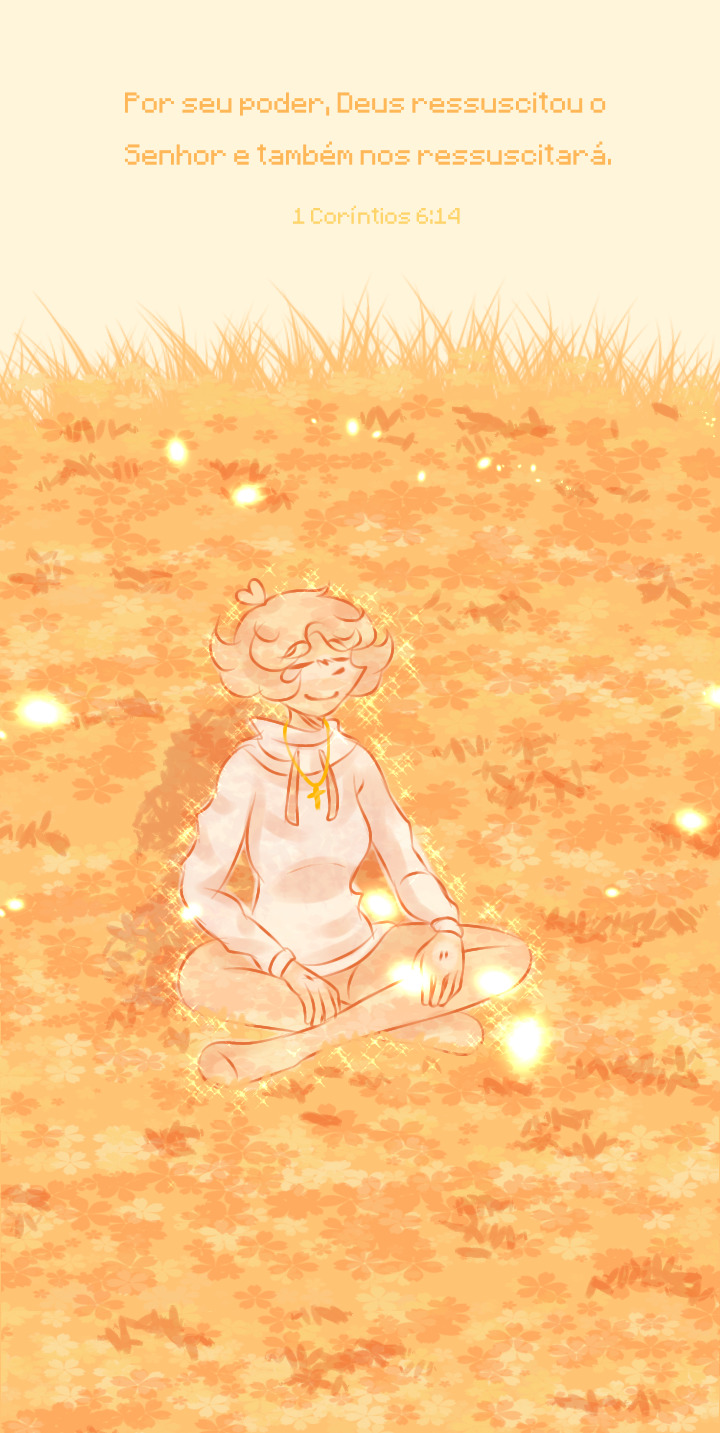

-Happy Easter..💛
#hi! so.... I'm going to say something different today. just so you don't ““insult”” me and say that I say the same thing every year!/j#for those who don't know. both the bunny and the chocolate egg have a true and also christian meaning!#being that of the egg: “eggs symbolize rebirth and renewal. which makes them perfect for celebrating the story of jesus’ resurrection.”#and the bunny: “the animal was associated with easter because it reproduces quickly and symbolizes fertility and new life.”#(I took this two from a google search. being it in the PORTUGUESE version. so I just translated it.#if you want to look for it in real english. look for it!)#so... it's okay if you want to give someone a chocolate egg or something like that. give a stuffed bunny to a child or someone too.#because there's really no problem#not only because of the real meaning. but there is no reason not to give as a gift something that is also special for that day.#and it's also cute gifts!#just.. DON'T MAKE IT A “SORRY EXCUSE” TO NOT CELEBRATE WHAT THE HOLIDAY REALLY IS!#which is the resurrection of christ! who died on the cross for all of us. ok!?#and yeah.. well. I'm leaving! I hope you have a great day and a blessed easter!! love you all!💛#happy easter#easter#easter art#i'm mel and this is my blog✌️#my art blog#art#my art#my art <3#art mel#my art style#my oc character#mel creator#resurrection of jesus#resurrection of christ#bible verse
26 notes
·
View notes
Text

[Id. Pencil sketch of a knocked out Gintoki as a cat, being dragged by his clothes by Kagura. End Id.]
It's knocked the fuck out Thursday Friday.
#gintama#gintama fanart#my art#sakata gintoki#gin nyan#knocked the fuck out Thursday Friday Saturday#so glad it's the end of the week even if i have stuff to do tomorrow#and next week is chilean holidays which mean holidays for me too if i'm lucky#so tired so very very tired
11 notes
·
View notes
Note
Out of your FSAU trio, who has the dirtiest mouth?
oh, man, Lili for sure. she has kind of a hair-trigger temper, and when she's mad you know about it
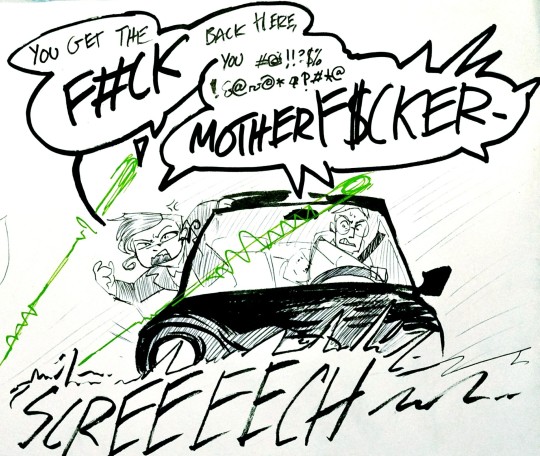
but they all have their moments! Raz grew up in the circus so he's also got a pretty dirty vocabulary haha. tends to be very verbose when swearing (something he mostly inherited from his mom lol), he'll curse you out in five different languages for a minor inconvenience
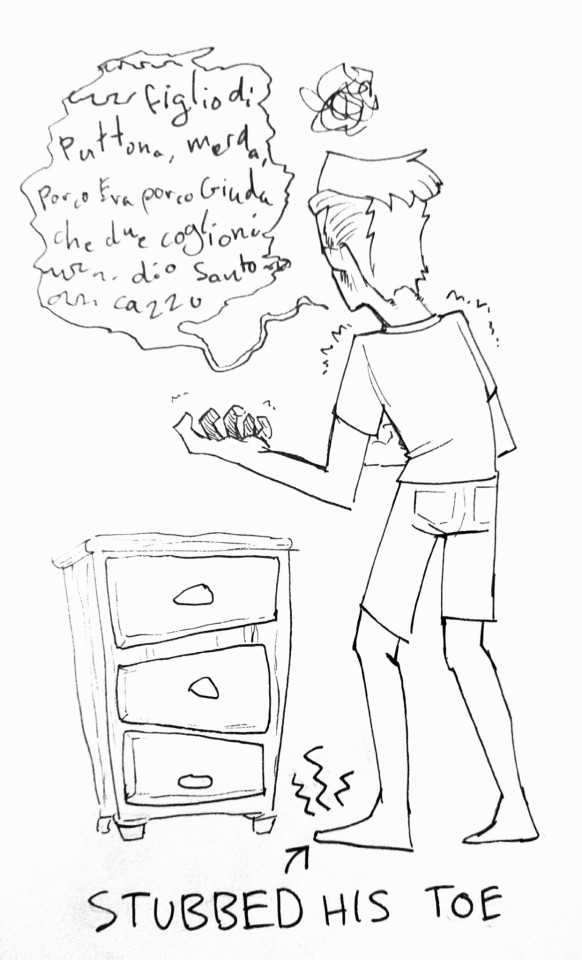
Dogen doesn't swear much (especially in comparison to the other two), but he really knows how to choose his moments
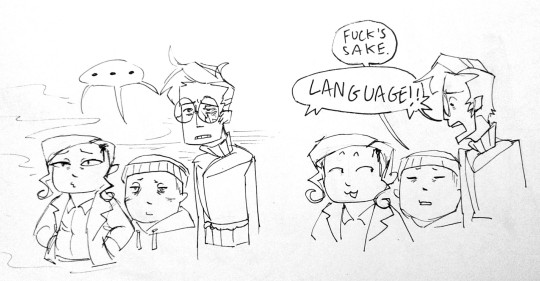
#dogen grew up with the dual influences of compton (who i can't imagine saying anything stronger than 'darn')#and sam whose immediate reaction on learning a New Swear is to go teach it to her baby brother#also i'm back home for the holidays which means it's sketchbook photo time again#trying a new editing process for these lemme know how they look#future superstar agents au#fsau lili#fsau raz#fsau dogen
247 notes
·
View notes
Text
so it's thursday. which means it's basically friday. which means it's technically already saturday. so the new only friends episode is going to be with us so soon
#feeling delulu#i'm in holiday mode which means i have so much more time to be insane about my silly little shows#only friends#only friends the series
24 notes
·
View notes
Note
In the Confucianism Book of Conduct 礼记, it talked about 3 kinds of ‘revenges’
《礼记》《曲礼上》“父之仇弗与共戴天,兄弟之仇不反兵,交游之仇不同国。”
Killing of father cannot be in existence under the sky, meaning, must take revenge for the killing of one’s father.
I was reading about chinise culture and read that. So, in mdzs, jl was supposed to kill his father's murder, based on chinise philosophy? That's why he stabbed wwx? I am curious ( and if it is like that, his forgiveness is even more important to me, at least)
Also, if it's not too much, what's your opinion about one of the last jc's scene, where jc raises his hand and then doesn't hit jl? I've read a ton of meta (breaking the circle of abuse... When we know he has never hit jl!). The scene confuses me and I was wondering if maybe I lack cultural contest.
Nonny, I'm not entirely certain where the emotional disconnect is on JL stabbing WWX except for I guess protagonist goggles. Like this isn't even a matter of philosophy, Chinese characters and people are not a giant black hole of "well they're too different for us to understand using human emotions!" nor are Chinese characters and people a monolith of "philosophy" and "cultural practices" that cannot be parsed outside of the in group.
Basically I guess what I'm asking here is "if someone tragically orphaned a child at age (1) month and that child is now a 13 year old who had a sword would you understand why this child stabbed the person who orphaned them, yes or no." I doubt Jin Ling was quoting philosophy about how he had to get revenge for his dad at that moment and more just? having an understandable human reaction? We can argue until 2300 about if it was the "correct" and "moral" reaction or not, but imo it was....an emotional reaction...much like how lots of characters in American media have human and emotional reactions.
(Also the revenge genre is not a uh, wholly Chinese concept, as far as I know lots of cultures round the world including the French which produced The Count of Monte Cristo also have stories about how you should take revenge against those who have wronged you. See Inigo Montoya's "you killed my father, prepare to die" from The Princess Bride as well.)
Lots of other people have written about JC's last scene in much more detail and much more eloquently than I will be able to manage here after grad school has started to fry my brain, if there isn't a consensus there, it just means that lots of people interpret that scene in a variety of different ways! pick the one you like best! Lit analysis is not a one size fits all correct answer generator.
#asks and answers#sometimes I do wonder if insisting that 'you have to take x into account'#has made people more likely to think there's some mystery in cnovels that can only be deciphered with cultural knowledge#and I mean yes in some ways#but also no in a lot of others#it's not mysterious it's just an emotional reaction sometimes#things are *influenced by* culture and philosophy#and it's nice if people like#yknow#know what holidays these people ought to be celebrating and not call hanfu kimono or whatever because that's racism!#but no chinese person I know is only influenced by confucian philosophy and not their very real human emotions#which all humans have#unfortunately you can swing too hard the other way and make chinese people sound like unrelatable aliens#idk where I'm going with this#jin ling#wei wuxian
25 notes
·
View notes
Text
i just finally got a library card and it's amazing, because!! i can just reserve any book i want in the world and take it home and read it?! for free?!!
#i knew this objectivly of course but somehow i'd forgotten because it's been so long since i've been part of a library where i live#i've always just had the library card for the city i grew up in and that's been kind of useless the past few years because i'm only there#in the holidays#anyway i don't know why i didn't think to join my local library before!! i mean i've literally visited it many times but for some reason#i just never got a library card before now. which is so dumb of me because it's so good!!#i've already borrowed like 10 books today. i got my new card and instantly took out an entire bag full with it
8 notes
·
View notes
Note
Dick Grayson is Ninja *shot*
Everyone say thank you Fanta for the future psych damage you are all going to receive
#ask#Fantajoseph#I probably won't#Just bc I've heard ninjas a really really awful person#Like he made a female streamers cry before#Like I would never be that mean to Richard#Timmy maybe#But not my boy dick he deserves a bit of a better youtuber#On a lighter note tho#Found out today that I get st Patrick's day off!!!#I'm technically working in the Scottish office rn#But they were like#It's an important Irish holiday you can take it as a bank holiday if you want#Which it would of been if I was working in n Ireland like Im meant to be#But yeah so happy
57 notes
·
View notes
Text

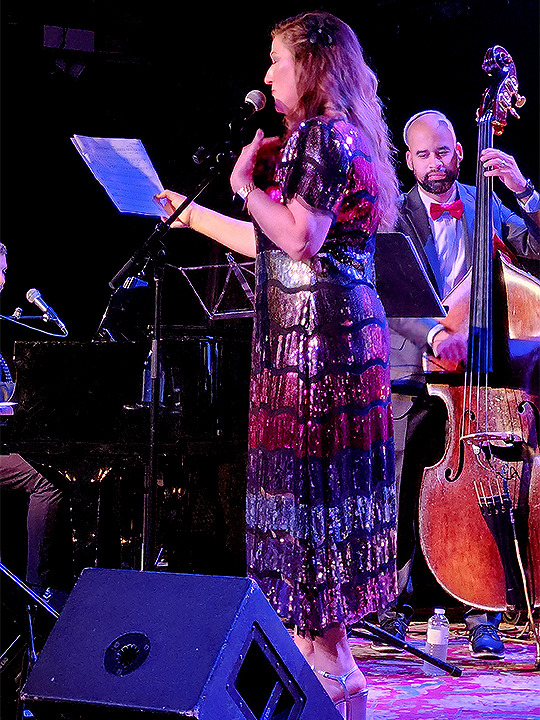

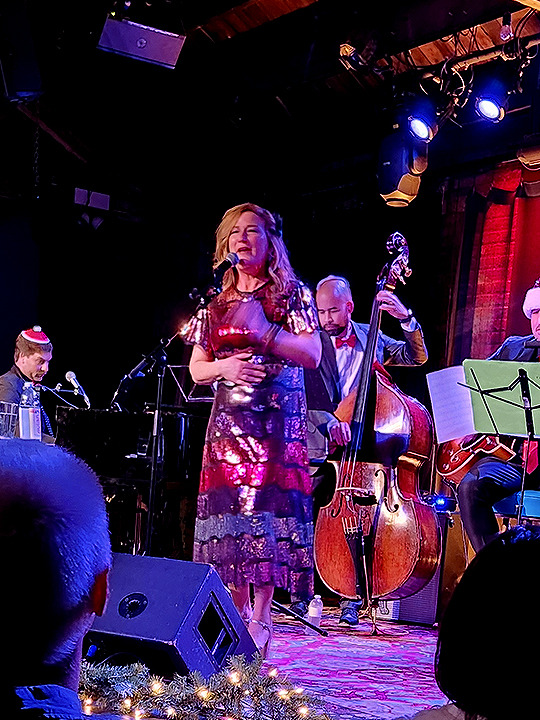
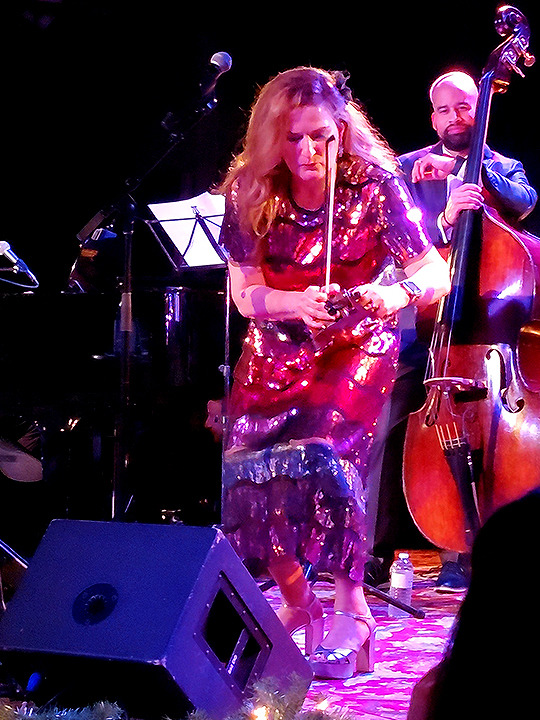
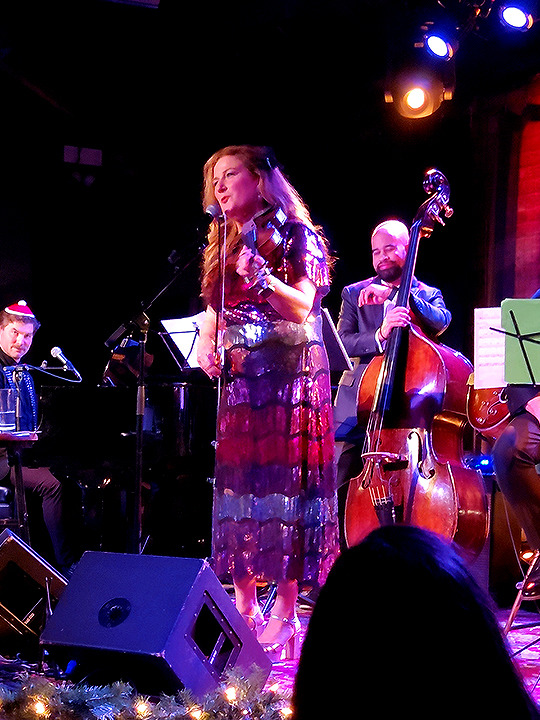
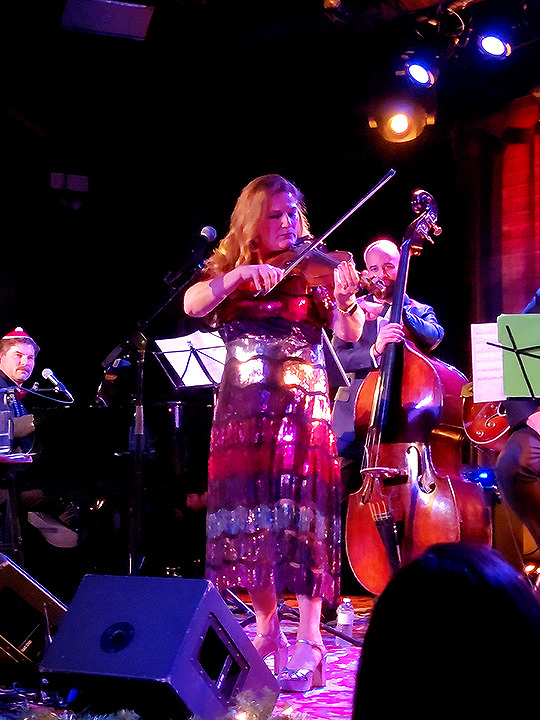
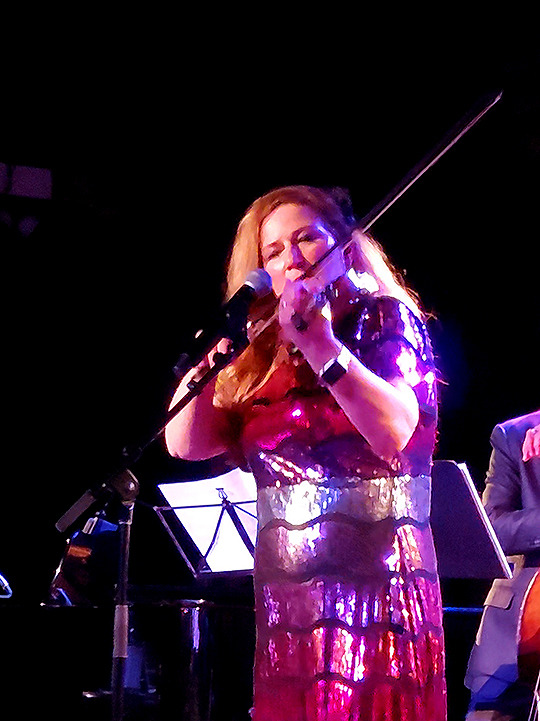
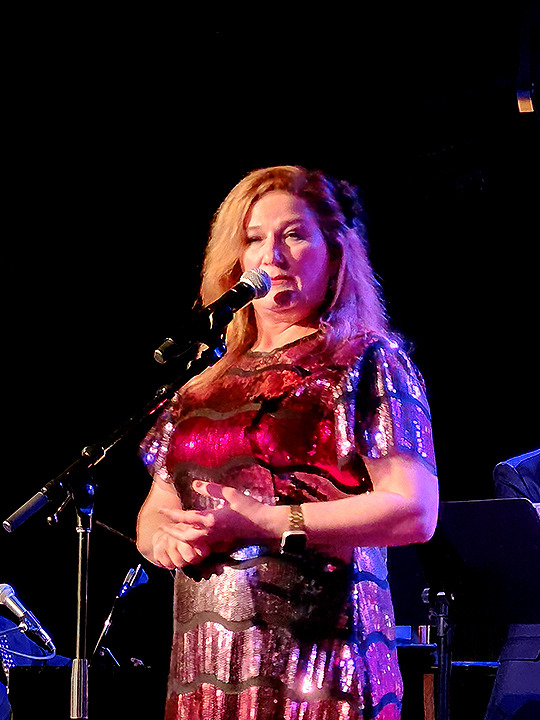

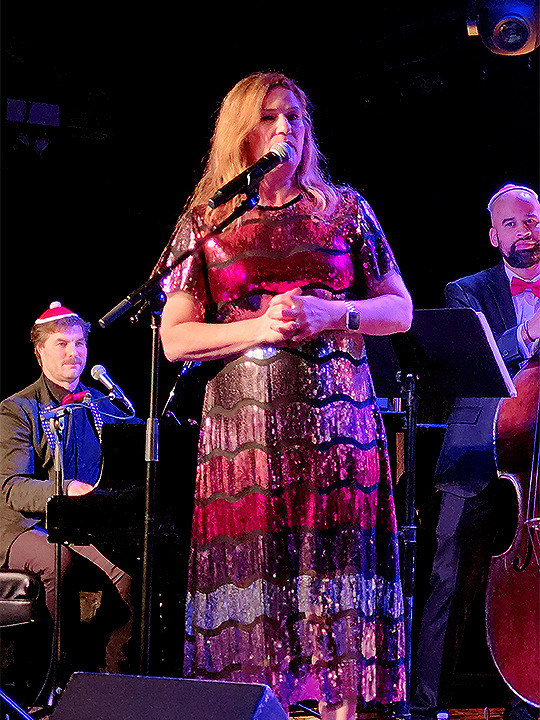

Ana Gasteyer 12.09.23 Evanston SPACE (images 1-8 early show, images 9-12 late show)
#ana gasteyer#where she's holding the sheet music she's singing the song from clusterfunke that maya sang 'all i want for christmas is fruit'#the violin pics are from her encore (early show) which she closed with you're a mean one mr. grinch#(they were asking the crowd holiday related questions and giving out little bottles of fireball whiskey to people who answered)#so the 9th pic i'm pretty sure is her reacting to a very drunk woman's story of regifting a pug puzzle#then julian hands her a bottle of whiskey and says 'at this point it's putting a hat on a hat'#💀#i'm still converting my videos but they'll probably be ready tomorrow<3 (i did post one so far tho)#*
14 notes
·
View notes
Text
To my Jewish friends: do you also watch the prince of Egypt every year at Passover? Or is it just me? 👀

#this is my way of celebrating lol#prince of egypt#passover#this movie has both the hottest man and hottest woman to come out of an animated film#in my humble opinion#I'm talking about Moses and Tzipporah#of course#though Rameses is not bad as well#i love this film so much#honestly this is the best holiday tradition#i mean there are so many Christmas movies which is cool!#and we got only one#but it's the best one 😏
34 notes
·
View notes
Text
Everyone's nature is a little good and evil, according to Strange Case of Jekyll & Hyde, you can't have one without the other, and if you repress everything that is evil in your nature you're not being authentic to your true self. Jekyll wanted to get rid of what was evil in him, his worst impulses, the parts of himself he's ashamed of and hides, by literally splitting his dual nature into a separate entity, Hyde, so he could live more comfortably without it, so he could be only good and honest and pure, the model upstanding citizen he pretends to be at his high society clubs, even though no one's that perfect. Everyone needs some balance. What I like about his drug is if you are out of balance, it brings out whichever side of your nature you've repressed: too honest, it brings out your dark side; too bad, it brings out what's good in you. It punishes you for the act of repression. It punishes you for the crime of not being true to yourself, to both sides of your nature.
#dr jekyll and mr hyde#r l stevenson#taken out of context for making silly jokes again. my crux. my crucible. I'm basically jeanne d'arc.#thing is. this book is my darling my light my love I am so precious about her. not enough to type out its whole name but#I send money home for her birthday and at holidays. she means the world to me.#also. I'm the dual nature guy and the title characters obsessed with dual natures so unsurprising I focus on that. interpret it as you like#I don't think stevenson was saying don't have bad impulses more. don't repress your bad impulses until you snap & kill a guy#you can't separate or fight your nature forever jekyll failed#which makes sense given the guy loved baudelaire and was out of step with the strict repressive times he lived in#have I mentioned lately how much I love robert louis stevenson?
5 notes
·
View notes
Note
how is aimsey updates mod doing?
I am so busy with research projects and papers I need to write anon you don't even know (I don't even know)
#mod nev#<- winter break is coming up which means I'm about to have a thousand projects to do#but fuck it we ball. at least I have fun being an aimsey updates mod#at least I can get festive for the holidays that'll be fun :>#what's up gamers how are you all this winter season#not an update#asks
11 notes
·
View notes
Text
the company i work for is about to go through a period of restructure whatever the fuck that means but my best friend (who works with me) just got told by our boss that they're firing her
#and i feel so shit for her bc there's no jobs atm here and we're about to go on holidays for a month which is so expensive#and it's so much uncertainty for her and so many questions that haven't been answered yet#she doesn't know when or what it really means or anything#and i'm in her old role which ironically means i'm probably safe from redundancy bc it's an essential one#but i feel bad bc she's worked here five years and i'm only in the door a year but she's being fired and not me#it's all so horrible and unfair i cried in the stairwell#luckily she's already visiting her parents so she was with them when she got the news rather than in the office
5 notes
·
View notes
Text
Tabled 3
Hello yet again, @barbarawar ! I swear I’m not dragging this @b-and-w-holiday-gift-exchange out on purpose—the thing is, I always think, “This will be the time I make these loons get it together with reasonable speed,” but I’m (almost) always wrong. This third part follows part 1, in which Myka met Helena for that Boone-mentioned coffee and suffered its consequences, and part 2, in which more coffee caused her to suffer more consequences, leading her to decided that the only way to mitigate the suffering was to cut Helena out of her life, choosing to do so on a busy concourse in Chicago’s O’Hare Airport. Helena for some reason (tragicomedy?) responded to this idea by dousing Myka in coffee.
Anyway, this third part will in turn be followed by at least one more part, because god forbid they work anything out unwordily. (In semi-positive news, I don’t think this will extend to the seven-part opus I inflicted on my poor giftee last year.) (However: I should acknowledge also that, unlike the book Myka consults in this story, I can’t predict the future.)
Tabled 3
Myka’s head tilts down again, involuntarily, to behold her now coffee-stained shirt. Just as involuntarily, she then raises her head, and, yes, Helena’s still looking like she’s proud of herself. Proud and calm and at peace. Myka voices the bafflement in her head: “You... what did you do?”
Helena’s expression doesn’t change. “Isn’t it obvious?”
Obvious? Yes? “You threw your coffee at me?” Obvious but incomprehensible? “You threw your coffee at me... on purpose?”
“Yes,” Helena says, like it’s an accomplishment. “I can do that. I’m not a hologram.”
That’s true, and... good? Important? But... “But you ruined my shirt,” Myka says, which is objectively a fact. Even though the fact makes no sense.
Helena offers a tiny shrug. “So take it off.”
At that, Myka hardens: You don’t get to say things like that to me! she wants to yell. She settles for demanding, “Are you insane?” As the words leave her, she feels their carelessness. But they had come in response to the extremity of the situation, and that was all Helena’s doing. Your fault not mine, Myka thinks, in mulish self-defense.
Instead of objecting, Helena blinks a slow, condescending blink—a blink of I know you know better—and says, “The answer to that question depends entirely upon whom you ask.”
Nobody better ask me. Not right now. Reassembling her outrage, vowing not to fall victim to any impulse to protect Helena (from careless words or herself or anything else), Myka sputters, “I have to get back on a plane!”
Helena gestures, lazily, at the disaster she caused. “In that ruined shirt?” she says, now with a tsk-tsk, as if Myka is the one whose actions are inexplicable, given that they’ve landed her in this unfortunate situation.
“I loved this shirt,” Myka says, and it’s an embarrassingly, tellingly true statement... why did she let it escape? She’s wearing the shirt because of that love, which she feels because it enhances the green of her eyes in a very particular way, a way she has all along admitted to herself she’s hoped Helena would notice: notice and... maybe... regret the loss of.
But choosing to wear it was, she sees, yet another blunder, because of course she’s now the one doing the regretting. Of course she is.
“Did you?” Helena says, with one of those maybe-I’m-just-vain head tosses. It displays her neck. It’s probably intended to display her neck. “More so now.” She follows that with the challenge of a trickster eyebrow-lift.
Myka wants to strangle her, for all the reasons but mostly because she isn’t wrong. Because this shirt, even if the stain washes out, will always now be this shirt. Particularly if the stain washes out: if Myka wears this shirt, or even considers wearing it, on some eventual, otherwise unremarkable day, the this shirt of it will occupy her thoughts.
Hey book, she thinks in the direction of South Dakota. Look at me, predicting a future I didn’t see before today.
Calmly, now, she gazes at that future. She can live with this unspooling, because being reminded of Helena, having to process nostalgia, is something she knows how to handle. So many things in the course of a normal day spark a similar memory walk, and she imagines—no, she sees—that they always will.
That retrieval will always be that retrieval—matteringly large. That aisle will always be that aisle, a place of unfinal goodbye. Quietly, in the kitchen, that tea will always be that tea. Et cetera.
This airport, in fact, will now always be this airport.
This shirt will always be this shirt.
She looks down again; the coffee has fully reached her skin, and the entire scene—the increasing damp chill, combined with the initial splash as well as Helena’s words and face and neck and this familiarly angry need to put hands around that neck—it’s awakened her. And it’s awakened them, or Myka’s sense of them, the two of them together, that perfect entity: Wells and Bering, Bering and Wells...
Myka picks up her (surprisingly) unempty cup from the table and removes its lid. She then lifts her eyes to, and her own eyebrow at, Helena, who smirks. Myka tightens, brightens, and she flings her remaining coffee at the pristine, creamy expanse of sweater, surely cashmere, adorning the perfect body across from her. An uncanny joy floods her as the liquid hits—as a stain blooms, marring what was previously flawless. As, even better, Helena’s smirk enlarges into a smile.
But the moment has no chance to resolve, for they’re interrupted: Myka hears a throat-clear from behind her. Helena widens her eyes, then rolls them like some adolescent book-artifact. Myka, unclear on what that reaction says about who the intruder is, turns herself around... ah. An authority figure. A woman whose badge and uniform identify her as airport security.
“Ladies,” that authority says, tired and resigned, as if that Myka and Helena’s little coffee assaults barely even rank for her as inappropriate behavior but she supposes she’d better intervene before some overvigilant busybody attacks her for not doing what they see as her job.
“I’m sorry,” Myka starts, but that’s a knee-jerk remnant of table-lying. Or, no: hiding. In any case, she’s not sorry. Not at all. She closes her mouth.
“Ladies,” the careworn agent says again. “This is not the way.”
Not what Myka expected to hear. She swallows a laugh at how the words sound like advice from a parallel universe—one in which she and Helena are in couples therapy. The laugh tastes of regret.
Helena shakes her head. She says, with seriousness, as if the agent’s words were what she expected to hear (as if that parallel universe were this one): “I assure you, this is the way.”
And Myka can’t help but confirm, as she suspects she would in that other universe as well, “The only way.”
To that, Helena offers a beautiful, open affirmation: a soft-eyed, beneficent nod.
Wells and Bering. Bering and Wells.
The agent gives them her own eyebrow—pretty effective as chastisement, as far as Myka’s concerned—then makes them show her both their cups, ascertaining their emptiness. She says, again, “Ladies,” cautionary but also long-suffering, like she’s seen this exact scenario play out too many times. Myka finds her jaded view comforting: she and Helena aren’t singular. This isn’t once-in-a-lifetime; it’s over and over in everybody’s lifetimes.
The agent takes her leave, but she stations herself only a gate and a half away, communicating quite clearly that Myka and Helena—Wells and Bering, Bering and Wells—can’t be trusted.
Well. That’s certainly true.
Focused on each other again, they breathe and look for a little. The respite is heavenly. Myka stands in her coffee-spoiled shirt, looking at Helena in her similarly marred sweater. It’s the least complicated span of time she’s enjoyed in months. No: years. She is regarding someone, a non-hologram someone, she wants to regard, at momentary peace, with the next moment (at the very least, the next moment) undetermined.
“I’m so very relieved to have passed inspection,” Helena eventually says, breaking it.
The fracture threatens to let the complications back in, but Myka resists. “You know she’ll be watching to make sure we don’t go back to Starbucks for refills. Or even to a water fountain.”
Helena smiles. Myka feels no need, in that moment, to spare a thought for what the renewed winch of circumstance will bring. Their accord, in that moment, is full. It’s them.
Them, full, beautiful, but it’s not for keeping. This is one last hurrah of their beautiful connection—and it does warm her that Helena would take such drastic, security-attracting action to resurrect the feeling, to call it back into being, as this coda.
That’s all it is, though, for there is Giselle. And there is Pete.
Myka looks, one more time, down at her shirt: ruined. Up at Helena’s sweater: ruined too. Then she says it aloud, what she knows, in the wake of all the destruction: “It’s the end.” Then, because they might as well rule the day, she lists the proximate reasons: “There’s Giselle, and there’s Pete.”
“No there isn’t,” Helena says, enviably serene.
Also obstinate. Myka supposes she should have expected that. “Yes there is. I won’t tell you again.”
Helena’s eyeroll now is no less exaggerated than the one she produced in response to the agent. “Won’t you? Thank god for that. However, my disbelief regarding ‘you and Pete’ aside, my meaning is that there is no Giselle.”
Hope is a muscle, according to cliché. If that’s true, Myka’s will one day blessedly atrophy, for it will no longer be subjected to Helena saying things that make it expand. “You broke up?” she asks, unable to control a traitorous tremor.
Helena purses her lips. It’s distracting. “I should say yes,” she offers.
What does that mean? As Myka wonders, she watches Helena fidget: she has her cup in her hand again, and she’s picking at the label, which refuses to come free. Myka waits out the struggle, until Helena finally abandons the task and says, “I should, but I’m newly committed to pursuing a policy of truth. And the truth is, there is no Giselle. There never was.”
An involuntary “what” escapes Myka’s mouth. It isn’t really a word; rather, it’s her placeholder when she has no coherent response to... anything.
“I made her up,” Helena adds, unhelpfully.
“What,” Myka says again, low and quiet, and this time it’s holding the place of—holding her back from—a scream.
“In that coffeeshop in South Dakota,” Helena says.
Myka registers that she’s touching her wet shirt, wrapping her arms around it, seeking protection from... this. She removes her arms and thinks herself down: What is a rational response? She turns to a nitpick. “That’s... when. When you made her up.”
“Yes,” Helena says.
“But why. Why.” Myka’s arms want to move again, and she doesn’t stop them. They press her shirt cold against her. Cold, so cold.
Helena delivers yet another infuriating shrug as she says, “You wouldn’t connect.”
“I wouldn’t connect.” Nightmare, nightmare. Myka is slogging through a cold, wet nightmare: the dream-logic of it, of Helena saying that Myka did what Helena actually did, makes that so, so obvious. But obvious also is that it isn’t a dream; Myka is awake and confused and if she could just go to sleep maybe everything would be put back where it belongs, but probably not, because her shirt is coffee-sticky and she is tripping, falling, drowning, all these but awake, awake and still stupidly willing to partake of hope, that drug she will never, ever be able to kick.
“I said there was someone else,” Helena says, schoolmarm-severe.
How dare she. “I know. I was there.”
Helena does dare: she dares to look wounded. “Yes, you were. And yet you weren’t, in that you so obviously, so coldly, refused to entertain the possibility that ‘someone else’ might be you. Given that, I had to protect myself.”
Myka had thought it a nightmare only seconds ago—she’d had no idea how much worse it could get. She can’t in any way process that “might be you,” and certainly not followed by the “given that.” The consequences. She can’t. She forces out, irrelevantly, “So you made up your ‘new’ girlfriend right on the spot?”
“Yes. I suppose I took some perverse pride in being able to do so.”
Of course she did. It’s exhausting. “On the spot, you made up someone named Giselle?” Myka is offended by how... believable this is. How if this thing had happened—as apparently it had—this was its necessarily, entirely credible form.
“What?” Helena says, in that familiar there is no reasonable basis for your skepticism tone. “It’s a name.”
“But that’s the name you came up with?” Myka pushes, knowing she’s pushing—seizing on it as exemplifying the absurdity, as if by forcing Helena to make sense of that, she can make everything else fall into place.
Helena’s slight hand-wave isn’t a shrug, but it’s even more infuriating in its dismissiveness. “On the flight to South Dakota I may have read an article about the ballet.���
That’s “making sense,” in a very Helena way, but it sure doesn’t help. “Thanks, ballet,” Myka snarks.
“Does the name matter so much?”
“I told it to people.” And the people she told it to remembered it, because it was memorable. She’d been subjected more than once to Pete “joking” about Helena and her fancy French girlfriend. It had been awful.
“To people at the Warehouse,” Helena guesses. Presses.
Myka isn’t prepared to acknowledge that pain, not here, not now. “To my sister,” she says, because that is true, and, thank god, less painful.
“You told the name of my supposed girlfriend to your sister,” says Helena, not as a question, but with wonder.
Myka had. In a vague “someone I know” sense, in the context of supporting a contention that it was just fine for people to love who they love, and Tracy had been thrilled to connect it to ballet, so obviously everything was a stupid circle. “What does that matter?” she demands, though she has no right to be so defensive; she brought up that telling. Why had she? As a way of pushing the case for Helena’s wrongness in being so misleading... but Myka is now exposed as being overly invested in speaking about Helena... which she is, but... this is all going completely wrong again.
“You spoke of me outside the Warehouse.” Still with that tinge of wonder.
Myka has no way to counter that. Helena’s right about its significance. Myka sometimes finds herself desperate to speak of Helena, simply to savor the saying of her name, and when Steve or Claudia isn’t available or willing to indulge her, she calls Tracy. She tries a shuffle to the side: “I thought it was important. To you, I mean.” That’s a feint. “And I tell my sister about important things.”
“Such as your relationship with Pete?” That’s a taunt. Helena’s the one pushing now.
Myka wishes she could yield.... fall over, soft and easy, and let Helena win. Instead, what emerges from her mouth is an unhelpfully true “Not yet.” Helena smiles, and it’s mean, so Myka follows up with, “At least she’ll believe me when I do. She’s been on that team for a long time.” Now Helena squints. “The ‘men and women can’t be friends’ team,” Myka explains. “You know.”
“I don’t know,” Helena says.
History. Helena has offered a similar deadpan response, with that same dry emphasis on the “don’t,” just about every time Myka has said “you know” like this to her, and Myka used to find it charming. But she doesn’t want to start remembering patterns. Falling back into them. Not when she knows she’ll have to break them again. So she treats Helena’s objection as entirely literal, saying a pedantic, “Men and women can’t be friends without romance getting in the way.”
Helena literally turns up her nose as she says, “The grounds upon which to object to such an asinine generalization are many and varied.” Her upper lip then drifts in the direction of a sneer. “But you know that perfectly well. You know also that it doesn’t apply to you and Pete.”
“It does,” Myka says. It sounds pathetically petulant: an adolescent’s objection to a more-mature figure’s knowing judgment. Great. Now she’s the one aping the artifact-book.
“It does not. You are friends.”
“And then romance—”
“Got in the way? No.”
“Yes.” Myka hears herself say the word, knows it is yet more artifact-book puerility.
“Got in the way? No,” Helena says again, as if repetition is all that’s needed to cancel out Myka’s objection. Myka tries not to concede, even internally, that that might be true. “Occurred at all? No to that as well.”
“Yes it did! Stop making me say it!” Why can’t she just let this be? Myka let her be, back in Boone.
“If it had in fact occurred, you would be delighted to say it!”
That’s so true that Myka desperately wishes she could throw more coffee, or something heavier and more damaging, to get Helena to shut up. “Stop it!” she shouts, knowing that those words have no weight, that they won’t damage.
Surprisingly, Helena does stop it, and the pause rings in Myka’s ears, making her aware of how loud their voices have become. She dares a look around: passersby don’t seem to care, but the agent has turned to look at them disapprovingly again; she’s shifting her weight from foot to foot, most likely preparatory to drifting with intent in their direction.
Helena copies Myka’s gaze, then grimaces. “I don’t wish to be placed under arrest,” she says.
“I don’t think she’d do that. Maybe she can mediate.” The alternate-universe-couples-therapy theory certainly suggests that’s within the realm of possibility.
“I don’t wish to share our discussion with her either.”
Myka knows she shouldn’t ask what seems obvious. Knows, knows, knows. But she asks anyway. “What do you wish?”
Helena inhales and exhales, once and then twice, her shoulders and chest rising and falling, rising and falling—clearly she’s considering, and abandoning, a series of possible responses.
At last, she produces words: “To continue to speak together.”
Myka’s plane doesn’t board for another hour and a half. She can grant this wish. She says, “If we can just keep the noise level down—”
“In private,” Helena says.
“We’re in an airport.” Myka spends so much time in airports. They are so unprivate.
Helena swivels her neck around, as if seeking to confirm Myka’s statement for herself, then focuses on Myka again. She holds that focus, for one beat then two, and this time she obviously already has an answer in mind; she’s trying to pique Myka’s curiosity. Of course it’s working. If Myka could put her hands on that neck and be assured of forcing words from that intentionally withholding mouth, she’d do it.
But she stills her wishing hands, and at last, Helena relents. “An airport, yes,” she says. “But one that houses a hotel.”
Which brings Myka up short. It also opens a chasm. She entertains, for one morally evacuated second, the idea of being in a hotel room with Helena—and, worse, of doing what people do in hotel rooms with Helena. Then she snaps her spine back into place and says, “Absolutely not.”
“For privacy,” Helena says. “Nothing more. I swear it.”
Myka knows what being manipulated by Helena feels like. This... isn’t that. Or at least, it isn’t a “doing what people do in hotel rooms” sort of that. “Privacy,” she echoes.
“Do you dispute the notion that we have more to say to each other?”
In so many parts of the past, Myka’s answer to that would have been an immediate “no.” Now, she pretends she has to think about it—but Helena most likely knows it’s a pointless pretense. Myka gives up and says “no” out loud.
“And would it not be better, in saying that more, to say it freely?”
The answer to that is less clear-cut, despite what Myka would love to believe is sincerity in Helena’s eyes and voice. She would love to believe it. So much... so does that mean she should say no?
As she thinks about it, however, this has all the hallmarks of being another blunder. As foretold by the book. And really, who is she to think she knows better than a predictive artifact?
“Okay,” she says. “Hotel.”
TBC
#bering and wells#Warehouse 13#fanfic#Tabled#B&W holiday gift exchange#part 3#barbarawar#one B&W-interaction possibility of which the show cruelly deprived us#intentionally or otherwise#was how they might have behaved together in actual privacy#(I mean this mostly in a nonprurient sense)#I don't believe we ever witnessed that#(vaguely in Vendetta but not really)#(vaguely in Buried but not really)#although I could be misremembering#as the show itself has for me over time resolved into a series of peaks of beauty#punctuated by shovel-blows to the head#or maybe it's the other way around#anyway I'm saying my mental files are kind of corrupted
39 notes
·
View notes